Holodomor in modern politics
The Holodomor (Ukrainian: Голодомор, literal translation Death by hunger) was a man-made famine in the Ukrainian SSR and adjacent Cossack territories between 1932 and 1933 that caused the deaths of millions of Ukrainians due to starvation.[1] The event is considered a genocide by Ukraine,[2] a crime against humanity by the European Parliament,[3] and merely part of the wider Soviet famine and famine relief effort by the Russian Federation.[4]
| Part of a series on the |
| Holodomor |
|---|
| Historical background |
|
| Soviet government |
|
Institutions
Policies
|
| Responsible parties |
| Investigation and comprehension |
Background
The Holodomor famine has experienced controversy in its classification as genocidal due in part to the objection of prominent Holocaust experts who took issue with the politicization of the word "genocide," a term originated by Raphael Lemkin. Lemkin was a featured speaker at the manifestation of Ukrainian-Americans in September 1953 to mark the twentieth anniversary of the Ukrainian Famine.[5]
At the international conference of the Ukrainian Holodomor, which was held in October 2003 at the Institute of Social and Religious History of Vicenza, 28 conference participants that included well-respected historians like James Mace, Hubert Laszkiewicz, Andrea Graziosi, Yuriy Shapoval, Gerhard Simon, Orest Subtelny, and Mauro Martini – endorsed a resolution addressed to the Italian government and the European Parliament with a request to recognize the Holodomor as an act of genocide against the Ukrainian people.[6][7]
Governments and parliaments of several of other countries have also officially recognized the Holodomor as an act of genocide.[8][9][10][11][12]
List
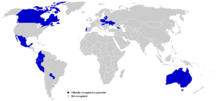
The following international organizations recognize the Holodomor as genocide:
The following international organizations recognize the Holodomor as a tragedy or crime against humanity:
- European Parliament[3]
- General Assembly of the United Nations[15][16]
- Parliamentary Assembly of the Council of Europe[17][18][19][20]
- Organization for Security and Cooperation in Europe[21][22]
- United Nations Organization for Education, Science and Culture[23][24][25]
The following countries recognize the Holodomor as genocide:

.svg.png)


.svg.png)

.svg.png)













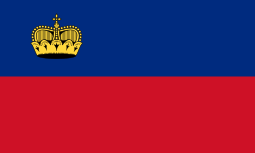



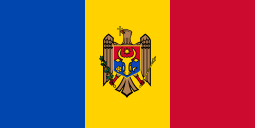


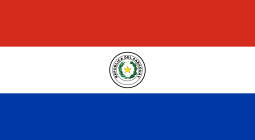





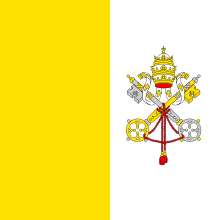
The following countries recognize the Holodomor as a criminal act:
Local recognition
Ukraine
On May 15, 2003, the Ukrainian parliament of Ukraine also passed a resolution declaring the famine of 1932–1933 an act of genocide, deliberately organized by the Soviet government against the Ukrainian nation.[50]
In 2006, the Security Service of Ukraine declassified more than 5,000 pages of Holodomor archives which suggest that the Soviet regime gave Ukraine less humanitarian aid than other famine-struck regions.[51][52]
On November 28, 2006, the parliament passed a resolution recognizing the Holodomor as an act of genocide against the "Ukrainian people" and criminalizing both Holodomor denial and Holocaust denial. Supporting the bill were BYuT (118 deputies), NSNU (79), Socialists (30), 4 independent deputies, and the Party of Regions (2). Opposing the bill were KPU. 200 deputies did not cast a vote. In all, 233 deputies supported the bill, which was more than the minimum of 226 votes required to pass it into law.[53][54][55]
In 2007, President Viktor Yushchenko declared he wanted "a new law criminalising Holodomor denial", including the designation of the Holodomor as genocide or not, but such a law has never been adopted.[56] Communist Party head Petro Symonenko accused Yushchenko of "using the famine to stir up hatred" and stated he "does not believe there was any deliberate starvation at all".[57] Few in Ukraine share Symonenko's interpretation of history and the number of Ukrainians who deny the famine or view it as caused by natural reasons is steadily falling.[58]
On 12 January 2010, the court of appeals in Kiev opened hearings into the "fact of genocide-famine Holodomor in Ukraine in 1932–33". In May 2009, the Security Service of Ukraine started a criminal case "in relation to the genocide in Ukraine in 1932–33".[59] In a ruling of January 13, 2010, Kyiv's Court of Appeal recognized the leaders of the totalitarian Bolshevik regime as those guilty of 'genocide against the Ukrainian national group in 1932-33 through the artificial creation of living conditions intended for its partial physical destruction.'"[60] The court dropped criminal proceedings against the leaders: Stalin, Vyacheslav Molotov, Lazar Kaganovich, Stanislav Kosior, Pavel Postyshev, Vlas Chubar and others, who all had died years before. This decision became effective on 21 January 2010.[61]
Russian Federation
The Russian Federation officially says that the Holodomor is not an ethnic genocide.
The lower house of parliament passed a resolution in 2008 stating that the Holodomor should not be considered genocide:[62]
There is no historical proof that the famine was organized along ethnic lines. Its victims were millions of citizens of the Soviet Union, representing different peoples and nationalities living largely in agricultural areas of the country.
The Russian Federation condemned the Soviet regime's "disregard for the lives of people in the attainment of economic and political goals", along with "any attempts to revive totalitarian regimes that disregard the rights and lives of citizens in former Soviet states" yet stated that "there is no historic evidence that the famine was organized on ethnic grounds."[63]
Russian politician Mikhail Kamynin has claimed that Russia is against the politicisation of the Holodomor, and this question is for historians, not politicians.[64] Simultaneously the vice-speaker of the Russian State Duma, Lyubov Sliska, when asked in Kiev when Russia would apologize for its part in repressions and famines in Ukraine, replied, "why always insist that Russia apologize for everything? The people whose policies brought suffering not only to Ukraine, but to Russia, Belarus, peoples of the Caucasus, and Crimean Tatars, remain only in history textbooks, secret documents and minutes of meetings."[64]
Ukrainian mass media censured Evgeny Guzeev, the Consul-General of the Russian Federation in Lviv, who stated that "the leaders of the period were sensible people, and it is impossible to imagine that this was planned."[65]
Kyiv Post believes that Russia contests the recognition of the famine as a genocide is because "as the Soviet Union's legal successor, Russia is also concerned about the possibility of legal action or having to pay reparations."[66]
On November 17, 2007 members from Aleksandr Dugin's Russian nationalist group the Eurasian Youth Union broke into the Ukrainian cultural center in Moscow and smashed an exhibition on the famine.[67]
According to a Moscow Times article: "The Kremlin argues that genocide is the killing of a population based on their ethnicity, whereas Stalin's regime annihilated all kinds of people indiscriminately, regardless of their ethnicity. But if the Kremlin really believed in this argument, it would officially acknowledge that Stalin's actions constituted mass genocide against all the people of the Soviet Union."[68]
In November 2010 a leaked confidential U.S. diplomatic cable revealed that Russia had allegedly pressured its neighbors not to support the designation of Holodomor as a genocide at the United Nations.[69]
International recognition
United Nations
The final report of the "International Commission of Inquiry Into the 1932–33 Famine in Ukraine", delivered to the UN Under-Secretary for Human Rights in Geneva on May 9, 1990, concluded that the famine in Ukraine was, in fact, genocide.[70] At same time the commission majority (5 of 6) deems it plausible that the constituent elements of genocide were in existence at the time of the famine.[71] Commission is unable to affirm the existence of a preconceived plan to organize a famine in Ukraine, in order to ensure the success of Moscow policies.[72]
On 10 November 2003, 23 countries affirmed the Joint declaration at the United Nations in connection with 70th anniversary of the Great Famine in Ukraine 1932–1933, which had the following preamble:[73] evaluating the Holodomor as a great tragedy.[74]
In the former Soviet Union millions of men, women and children fell victims to the cruel actions and policies of the totalitarian regime. The Great Famine of 1932–1933 in Ukraine (Holodomor), took from 7 million to 10 million innocent lives and became a national tragedy for the Ukrainian people. In this regard, we note activities in observance of the seventieth anniversary of this Famine, in particular organized by the Government of Ukraine. Honouring the seventieth anniversary of the Ukrainian tragedy, we also commemorate the memory of millions of Russians, Kazakhs and representatives of other nationalities who died of starvation in the Volga River region, Northern Caucasus, Kazakhstan and in other parts of the former Soviet Union, as a result of civil war and forced collectivisation, leaving deep scars in the consciousness of future generations.
Valery Kuchinsky, the chief Ukrainian representative, stated that the declaration was a compromise between the position of Ukraine that the Holodomor was a genocide and the positions of Great Britain, United States and Russia that it was not.[65]
United States
At the conference on "Recognition and Denial of Genocide and Mass Killing in the 20th Century," held at City University of New York on 13 November 1987, it was stated that Soviet Ukraine suffered a man-made famine in 1932–1933, during which millions died. The United States Government Commission concluded this was part of the central governments's attack on Ukrainian nationality and culture. The United States Government received numerous contemporary intelligence reports on the famine from its European embassies, but chose not to acknowledge the famine publicly. Similarly, leading members of the American press corps in the Soviet Union willfully covered up the famine in their dispatches. In both cases, political considerations relating to the establishment of diplomatic relations with the U.S.S.R. seem to have been critical factors in this cover-up.[75]
According to the US Government Commission on the Ukrainian Famine,[8] the seizure of the 1932 crop by the Soviet authorities was the main reason for the famine. The US commission stated that "while famine took place during the 1932–1933 agricultural year in the Volga Basin and the North Caucasus Territory as a whole, the invasiveness of Stalin's interventions of both the Fall of 1932 and January 1933 in Ukraine are paralleled only in the ethnically Ukrainian Kuban region of the North Caucasus".
Europe
On 3 July 2008 the Parliamentary Assembly of Organization for Security and Co-operation in Europe passed the resolution condemning the Ukrainian famine acknowledging the direct responsibility of the Soviet action. The resolution called upon all parliaments to take measures on recognition of the fact of Holodomor in Ukraine but fell short of recognizing it as an act of genocide as requested by the document prepared by the Ukrainian delegation.[76][77]
On 23 October 2008, the European Parliament passed a resolution that called Holodomor "an appalling crime against the Ukrainian people, and against humanity" that was "cynically and cruelly planned by Stalin's regime in order to force through the Soviet Union's policy of collectivization of agriculture". The resolution, however, stopped short of calling the famine an act of genocide.[78]
Misuse of graphical materials
Some images related to the Russian and Ukrainian famine of 1921 or Great Depression in the United States have been presented as Holodomor-related images.[79] According to American historian, Morgan E Williams: "Ninety-five percent of the photos that are represented as being of the Ukrainian famine are from Russia. That's a sore point with me. [The gaffes] are then used by people who say we exaggerate the extent of the famine. Or even worse, by people who deny [that the famine ever occurred]".[80]
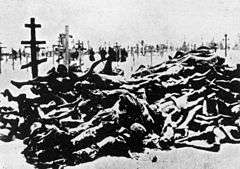
 The above image pictured in a display on the Holodomor in front of the St. Michael's cathedral
The above image pictured in a display on the Holodomor in front of the St. Michael's cathedral
References
- - "The famine of 1932–33", Encyclopædia Britannica. Quote: "The Great Famine (Holodomor) of 1932–33—a man-made demographic catastrophe unprecedented in peacetime. Of the estimated six to eight million people who died in the Soviet Union, about four to five million were Ukrainians... Its deliberate nature is underscored by the fact that no physical basis for famine existed in Ukraine... Soviet authorities set requisition quotas for Ukraine at an impossibly high level. Brigades of special agents were dispatched to Ukraine to assist in procurement, and homes were routinely searched and foodstuffs confiscated... The rural population was left with insufficient food to feed itself."
- "The Artificial Famine/Genocide (Holodomor) in Ukraine 1932–33". InfoUkes. 2006-11-28. Updated April 26th 2009. Retrieved 08-12-2013.
- "Parliament recognises Ukrainian famine of 1930s as crime against humanity". European Parliament. 23 October 2008. Archived from the original on 9 July 2011.
- "Russian lawmakers reject Ukraine's view on Stalin-era famine". Russian News & Information Agency. 2008-04-02.
- Yaroslav Bilinsky (1999). "Was the Ukrainian Famine of 1932–1933 Genocide?". Journal of Genocide Research. 1 (2): 147–156. doi:10.1080/14623529908413948. Archived from the original on 2008-06-15. Retrieved 2008-11-25.
- "Convegno internazionale di studi: La grande carestia, la fame e la morte della terra nell'Ucraina del 1932–33" [International conference: A great famine, starvation and death in the land of Ukraine in 1932–33] (PDF) (in Italian). Italian Association of Ukrainian Studies (AISU). October 2003. Archived from the original (PDF) on 27 February 2005.
- James Mace (21 October 2003). "The Great Famine-Genocide in Soviet Ukraine (Holodomor): Intellectual Europe on Ukrainian Genocide". The Day Weekly Digest. artukraine.com. Archived from the original on 2016-03-04. Retrieved 26 February 2016.
- "U. S. Commission on the Ukraine Famine, Report to Congress: Findings". U.S. Commission on the Ukraine Famine. faminegenocide.com. 19 April 1988. Archived from the original on 4 June 2011. Retrieved 26 February 2016.
- "US House of Representatives Authorizes Construction of Ukrainian Genocide Monument in Washington, D.C." UCCA. 16 November 2005. Archived from the original on 25 November 2005.
- "Statement by Pope John Paul II on the 70th anniversary of the Famine". skrobach.com. 2007. Archived from the original on 30 June 2007.
- HR356 "Expressing the sense of the House of Representatives regarding the man-made famine that occurred in Ukraine in 1932–1933" Archived 2008-06-15 at the Wayback Machine, United States House of Representatives, Washington, D.C., October 21, 2003
- Countries whose governments recognize Holodomor as Genocide are Argentina , Australia , Azerbaijan , Belgium , Canada , Estonia , Georgia , Hungary , Italy , Latvia , Lithuania , Moldova , Poland Archived 2008-10-28 at the Wayback Machine, United States and the Vatican
- "Statement On Commemorating the Victims of Genocide and Political Repressions Committed in Ukraine in 1932 and 1933" (PDF)., 26th Session of the Baltic Assembly, 13th Baltic Council, from 22 to 24 November 2007, Riga, Latvia, (accessed on December 9, 2007)
- "Baltic Assembly Adopts Statement "In Commemorating Victims of Genocide and Political Repression in Ukraine in 1932 1933"". Ukrinform. 4 December 2007. Archived from the original on 2011-08-07. Retrieved 9 December 2007.
- "Letter dated 7 November 2003 from the Permanent Representative of Ukraine to the United Nations addressed to the Secretary-General" (PDF). Permanent Mission of Ukraine to the UN. 7 November 2003. Archived from the original (PDF) on 4 March 2014. Retrieved 23 February 2016.
- UN Member-states sign joint declaration on Great Famine
- "Resolution 1481 (2006) Need for international condemnation of crimes of totalitarian communist regimes". Council of Europe Parliamentary Assembly. 25 January 2006. Archived from the original on 27 June 2014.
- PACE strongly condemns crimes of totalitarian communist regimes, PACE News, (accessed on June 22, 2007)
- "Doc. 10765 – Need for international condemnation of crimes of totalitarian communist regimes". Council of Europe Parliamentary Assembly. 16 December 2005. Archived from the original on 6 June 2011.
- "Holodomor Ucrania proposes a la Asamblea Parlamentaria del Consejo de Europa el condemn Holodomor". UCRANIA.com. 26 January 2006. Archived from the original on 2007-09-28. Retrieved 3 April 2007.
- "Joint Statement of the OSCE participating States: Andorra, Azerbaijan, Bosnia and Herzegovina, Bulgaria, Canada, the Czech Republic, Estonia, France, Georgia, Germany, Holy See, Hungary, Ireland, Latvia, Lithuania, the former Yugoslav Republic of Macedonia, Moldova, Norway, Poland, Slovakia, Spain, Sweden, Ukraine, the United Kingdom, the United States of America "On 75th Anniversary of the Holodomor of 1932 and 1933 in Ukraine"". Madrid: Ministry for Foreign Affairs of Ukraine. 30 November 2007. Archived from the original (DOC) on 19 February 2009. Retrieved 9 December 2007.
- "25 OSCE-Participant Countries Adopt Joint Statement "On 75th Anniversary of Holodomor in Ukraine 1932–1933"". Ukrinform. 4 December 2007. Retrieved 9 December 2007.
- "34 C/50: Remembrance of Victims of the Great Famine (Holodomor) in Ukraine" (PDF). UNESCO. 8 October 2007. Archived from the original (PDF) on 21 May 2011. Retrieved 15 October 2007.
- UNESCO Calls On Its Member-Countries To Honor Memories Of Victims Of 1932–1933 Famine in Ukraine, November 1, 2007, Ukrainian News Agency, (reached on November 1, 2007)
- Mykola Siruk (6 November 2007). "Not too late. Three messages in UNESCO resolution commemorating Holodomor victims". The Day. Archived from the original on 9 November 2007. Retrieved 7 November 2007.
- https://mobile.twitter.com/UKRinUN/status/1071083948070047746
- "Foreign Affairs: Ukrainian Famine (No. 680)" (PDF). Journals of the Senate. 114: 2652–2653. 30 October 2003. Archived from the original (PDF) on 29 December 2004.
- "Australian Senate condemns Famine-Genocide". The Ukrainian Weekly. LXXI (46). 16 November 2003. Retrieved 28 December 2015.
- "Journals of the Senate No.72, 2nd Session, 37th Parliament" (PDF). 19 June 2003: 994–995. Retrieved 28 December 2015. Cite journal requires
|journal=(help) - Canadian Senate adopts motion on Famine-Genocide, by Peter Stieda, The Ukrainian Weekly, June 29, 2003, No. 26, Vol LXXI, (accessed on June 26, 2007)
- Colombia Recognizes Holodomor Famine in Ukraine in 1932–1933 The Genocide, Ukrainian News Agency, December 24, 2007, (Accessed on December 26, 2007)
- "Columbia declares Holodomor an act of genocide". Ukrainian Helsinki Human Rights Union. 25 December 2007. Archived from the original on 19 February 2009. Retrieved 26 March 2008.CS1 maint: unfit url (link)
- "Aprueba resolución: Congreso se solidariza con pueblo Ucraniano" [Resolution passed: Congress is in solidarity with Ukrainian people]. National Congress of Ecuador (in Spanish). 30 October 2007. Archived from the original on 2 November 2007. Retrieved 31 October 2007.CS1 maint: unfit url (link)
- Ecuador Recognized Holodomor in Ukraine!, Media International Group, October 31, 2007, (Accessed on October 31, 2007)
- (in Polish) UCHWAŁA, Sejmu Rzeczypospolitej Polskiej, z dnia 6 grudnia 2006 r., w sprawie uczczenia ofiar Wielkiego Głodu na Ukrainie.
- "Sprawozdanie – Komisji Ustawodawczej oraz Komisji Spraw Zagranicznych – o projekcie uchwały w sprawie rocznicy Wielkiego Głodu na Ukrainie" [Report of the Legislative Committee and Foreign Affairs Committee – on the project resolution concerning the anniversary of the Great Famine in Ukraine] (PDF). Senate of the Republic of Poland (in Polish). 14 March 2006. Retrieved 24 July 2016.
- "Holodomor 1932–1933. Reference, Government Reports, Laws". HOLODOMOR : The famine-genocide of Ukraine, 1932–1933. Connecticut Holodomor Committee. Retrieved 28 December 2015.
- "Resolution of the House of Representatives of the US (HRES 356 EH)" (PDF). U.S. Government Printing Office. 20 October 2003. Archived from the original (PDF) on 7 November 2012.
- Американський штат Вірджинія визнав Голодомор геноцидом. Українська правда (in Ukrainian). 2018-11-08. Retrieved 2018-11-08.
- Embassy of Ukraine in the USA
- "Штат Коннектикут признал Голодомор геноцидом украинского народа". ZN.ua. 2018-11-21. Retrieved 2018-11-21.
- "International Recognition of the Holodomor". Holodomoreducation.org. 28 November 2006. Retrieved 24 July 2016.
- Resolução do Senado da Argentina (n.º1278/03), Resolution of the Senate of Argentina (No. 1278-03), June 26, 2003
- El proyecto de ley number 1278-03, Ukrainian World Congress (accessed on October 31, 2006)
- National Senator Carlos Alberto Rossi, Honorable Senate of the Nation, (accessed on February 13, 2007)
- Argentinean Parliament approved resolution to commemorate 1932 to 1933 Holodomor victims in Ukraine, Ukrinform, December 28, 2007, (accessed on December 28, 2007)
- "Parlament České republiky, Poslanecká Sněmovna – 535 Usnesení Poslanecké sněmovny z 23. schůze 30. listopadu 2007" [The Parliament of the Czech Republic, Chamber of Deputies – Resolution 535 of Chamber of Deputies from the 23rd meeting of 30 November 2007] (PDF). Parliament of the Czech Republic (in Czech). 30 November 2007. Retrieved 23 February 2016.
- "NR SR: Prijali deklaráciu k hladomoru v bývalom Sovietskom zväze" [National Council: Adopted a declaration on the Holodomor in the former Soviet Union] (in Slovak). EpochMedia. 13 December 2007. Archived from the original on 19 February 2009. Retrieved 26 March 2008.
- "Slovak Parliament Recognizes Holodomor of 1932–1933 in Former USSR, Including in Ukraine, "Extermination Act". Ukrinform. 13 December 2007. Archived from the original on 2011-08-07. Retrieved 13 December 2007.
- "Про Звернення до Українського народу учасників спеціального засідання Верховної Ради України 14 травня 2003 року щодо вшанування пам'яті жертв голодомору 1932–1933 років" [On the appeal to the Ukrainian people of the participants of the special session of the Verkhovna Rada of Ukraine on May 14, 2003 to commemorate the victims of the 1932–1933 famine]. Verkhovna Rada. May 15, 2003. Archived from the original on December 9, 2013.
- "Служба безпеки України". Ssu.kmu.gov.ua. Archived from the original on 10 April 2018. Retrieved 7 September 2012.
- "SBU documents show that Moscow singled out Ukraine in famine". 5 Kanal. 22 November 2006. Archived from the original on 27 September 2007. Retrieved 22 July 2012.
- Закон України: Голодомор 1932–1933 років в Україні – Закон від 28.11.2006 № 376-V [Law of Ukraine: Holodomor in Ukraine 1932–1933 – Law from 28.11.200t No 376-V]. Supreme Council of Ukraine (in Ukrainian). 28 November 2006. Retrieved 26 February 2016.
- "Holodomor and Holocaust denial to be a criminal offense", 3 April 2007
- "What the Verkhovna Rada actually passed", February 28, 2007
- "Public denial of Holodomor Famine of 1932–1933 in Ukraine as genocide of Ukrainian people to be prosecuted". Radio Ukraine International. 2007-12-10. Archived from the original on 2010-12-03.
- Sheeter, Laura (24 November 2007). "Ukraine remembers famine horror". BBC News. Archived from the original on 31 July 2012. Retrieved 21 July 2012.
- Большинство украинцев считают Голодомор актом геноцида Archived 18 May 2015 at the Wayback Machine, Korrespondent.net, 20 November 2007
- Interfax-Ukraine (12 January 2010). "Holodomor court hearings begin in Ukraine". KyivPost.com. Archived from the original on 3 March 2014. Retrieved 21 July 2012.
- Interfax-Ukraine (27 April 2010). "Our Ukraine Party: Yanukovych violated law on Holodomor of 1932-1933". Kyiv Post. Archived from the original on 2012-09-30. Retrieved 10 August 2010.
- Interfax-Ukraine (21 January 2010). "Sentence to Stalin, his comrades for organizing Holodomor takes effect in Ukraine". KyivPost.com. Archived from the original on 3 March 2014. Retrieved 21 July 2012.
- Steve Gutterman (2 April 2008). "Russia: 1930s Famine Was Not Genocide". Associated Press. Archived from the original on 8 April 2008.
- "Russian lawmakers reject Ukraine's view on Stalin-era famine". Russian News & Information Agency. 2008-04-02.
- News Ru Russia owes Ukraine no apologies" thinks vice-speaker of the Duma Released on 5th of December, 2006.
- Borysov, Dmytro "Russian diplomat denies the Holodomor" Lvivska Hazeta 29.11.2005 (in Ukrainian)
- "EU denounces 1930s Ukrainian famine as crime". Kyiv Post. 23 October 2008. Archived from the original on 5 June 2011.
- "Ukraine Demanding That Russia Punish Eurasian Youth Union Members For Smashing Famine Exhibition In Moscow". ukranews.com. November 2007.
- Bovt, Georgy (2008-04-24). "Equating Holodomor With Genocide". The Moscow Times. Archived from the original on 2011-06-04. Retrieved 2008-05-01.
- "Cable 08BISHKEK1095, CANDID DISCUSSION WITH PRINCE ANDREW ON THE KYRGYZ". WikiLeaks. November 2010. Retrieved 30 November 2010.
- Jacob W.F. Sundberg (May 1990). "International Commission of Inquiry Into the 1932–33 Famine in Ukraine. The Final Report (1990)". The Institute of Public and International Law (IOIR). Archived from the original on 4 December 2004.
- Final Report of International Commission of Inquiry Into the 1932–33 Famine in Ukraine p.9 https://web.archive.org/web/20080910085025/http://www.ukrainianworldcongress.org/Holodomor/Holodomor-Commission.pdf
- Final Report of International Commission of Inquiry Into the 1932–33 Famine in Ukraine p.48 https://web.archive.org/web/20080910085025/http://www.ukrainianworldcongress.org/Holodomor/Holodomor-Commission.pdf
- Joint Statement on Holodomor
- "30 U.N. member-states sign joint declaration on Great Famine" (PDF). The Ukrainian Weekly. 71 (46): 1, 20. 16 November 2003. Archived (PDF) from the original on 3 March 2014. Retrieved 22 July 2012.
- Mace, James E. (1988). "The Politics of Famine: American Government and Press Response to the Ukrainian Famine, 1932–1933". Holocaust and Genocide Studies. 3 (1): 75–94. doi:10.1093/hgs/3.1.75.
- ПА ОБСЕ приняла резолюцию по голодомору на Украине. Геноцидом он не признан, Newsru.com, 3 July 2008 г.
- ПА ОБСЕ приняла резолюцию по Голодомору в Украине, korrespondent.net, 3 July 2008
- "MEPs recognize Ukraine's famine as crime against humanity". Russian News & Information Agency. 2008-10-23. Retrieved 2008-10-23.
- Украина обвиняет в голодоморе администрацию президента США Рузвельта Regnum 6 March 2009 (in Russian)
- "The Great Famine-Genocide in Soviet Ukraine (Holodomor): Citizen action at work". Kyiv Post. artukraine.com. 9 October 2003. Archived from the original on 2016-03-03. Retrieved 26 February 2016.
- Ruslan V. Olkhovskiy. "Famine in the Soviet Union, 1921-1922 - Photographs and Postcards". artukraine.com. Archived from the original on 2015-05-01. Retrieved 26 February 2016.
- «La famine en Russie» Album Illustre, Livraison No. 1, Geneva, Comite Russe de Secours aux Affames en Russie, 1922
- "Photo". IPV news. Archived from the original on 13 September 2007.
- Владимир Корнилов: "Рано или поздно мы с вами должны начать контрнаступление в защиту наших с вами важнейших гражданских прав" [Vladimir Kornilov: "Sooner or later we'll have to start a counter-offensive in defence of our most important civil rights"]. Ukrainian Party of Regions (in Russian). 1 February 2008. Archived from the original on 7 December 2008.